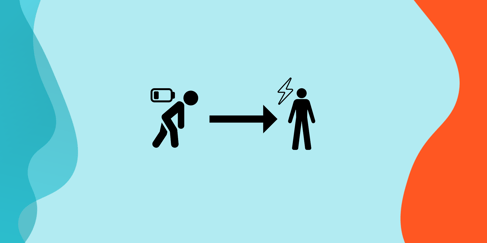Written By:
Kelsey Miller
If you were to strike up a conversation with your favorite brand, what would they say?
Envision this brand as a person: What is their personality like? What do they sound like? Who are they really?
The answers to these questions describes the brands identity, and more specifically its voice. Although a brand isn’t typically made up of a singular person with a recognizable face, it does have its own voice and personality that make it a distinct entity. And crafting that voice to be cohesive and purposeful is an essential part of communicating with your target audience.
What is Brand Voice?
Put simply, brand voice is the unique personality that a company exhibits throughout all outward-facing communications. Brand voice is a central aspect of marketing, as it should guide all facets of your messaging strategy—from the words and phrases that you use, to the types of content you create, and even how you distribute that content.
An effective brand voice is present in content including:
- The company website
- Brochures, flyers, and presentations
- Blog posts
- Emails
- Social media posts
- Videos
- Advertisements
- And more
It’s important that your brand voice remains constant across each medium as well. For instance, the way your brand is portrayed on social media should be largely the same as the way it is portrayed in your weekly email newsletter, your company website, and so on. Being consistent in your messaging ensures that the band is united under one identity, allowing you to build stronger relationships with your audience.
Identify and fine tune your brand voice by downloading our free worksheet!

As you begin to think about your own company’s brand voice, think about the qualities that are most important to your business and how you can channel those into one purposeful identity. If your brand is already established, take the time to identify your existing voice and look for ways to fine-tune it.
Below are five great examples that you can use as inspiration to define, validate, and utilize your brand voice.
Examples of Brand Voice
1. Nike: Powerful and Inspiring
When thinking of companies with stellar brand voice, people often start by recalling the slogans, visuals, and messages that have stood out to them over the years. For many, the first brand that comes to mind is Nike.
Nike is known for its inspirational tone of voice, which also includes an element of grit. Its iconic slogan—“Just do it”—has created a powerful brand persona that encourages athletes (and, really, all of us) to pursue their goals with resilience and persistence.
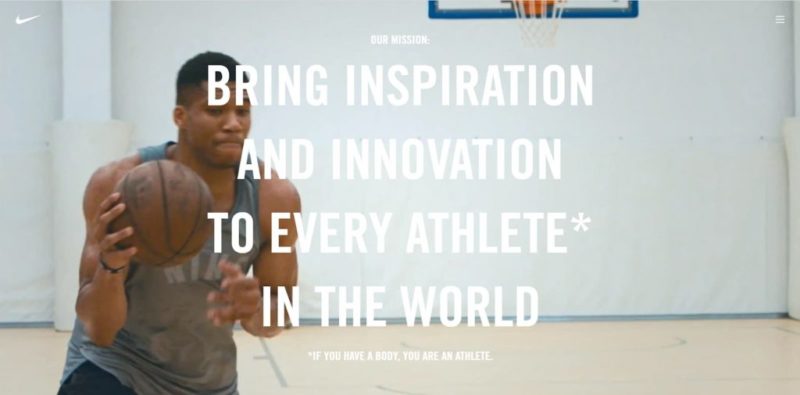
Nike’s brand voice permeates every aspect of its messaging, from mission statement to advertisements to product descriptions. The result: A cohesive identity that customers have come to recognize and appreciate.
2. Slack: Friendly and Helpful
Slack, a popular workplace messaging app, has built a presence which is marked by productivity and collaboration. And, if Slack were a person, it would probably be the most helpful person you know.
At every level from their blog, to social media, and even in-app communication, Slack is always providing its users with helpful guides, resources, and answers to all kinds of questions. In creating their brand voice, Slack has also excelled in maintaining a sense of professionalism while also keeping their messaging lighthearted and fun.
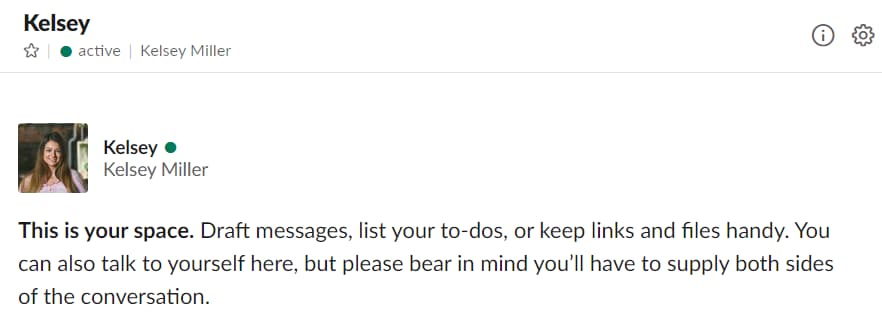
Their simple and easy-to-understand content gives the company a personality that is not only friendly and approachable, but also laser focused on helping their users be as productive as possible.
3. Dollar Shave Club: Witty and Sharp
Dollar Shave Club takes fun and lighthearted to the next level. In fact, their humor is almost as sharp as the razors they sell.
Due to the nature of Dollar Shave Club’s brand voice, their content is often less formal than that of their competitors, making it appealing to their audience. This approach also allows them to be upfront about their marketing. Take this blog post which ranks different types of bagels. Although seemingly unrelated, the brand found an interesting way to tie in their products and let their readers know about it.
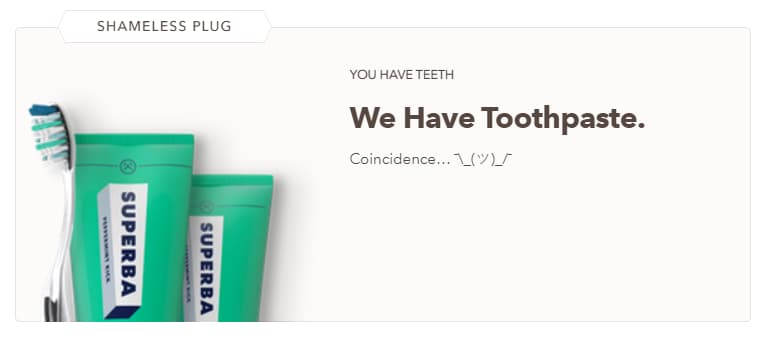
The wit and humor that defines the brand lets the company engage with their audience in a way that’s different than the strategies of most competitors. Given the fact that most consumers hardly give a lot of thought to which toothpaste or razor they buy, this approach is a breath of fresh air to some.
4. Dove: Uplifting and Empowering
Known for their series of campaigns focused on dispelling unrealistic beauty standards, body positivity is a theme that has become central to Dove’s brand identity. These campaigns in conjunction with the company’s other messaging—from email newsletters to tweets and more—have resulted in an uplifting and inspiring brand voice that resonates with the company’s audience.
Dove made waves by recognizing the lack of representation of different populations in the industry and taking steps to create a more inclusive beauty community. Instead of upholding widely held yet harmful beauty standards, the company shifted its efforts to create advertising and marketing materials that were representative of their audience.
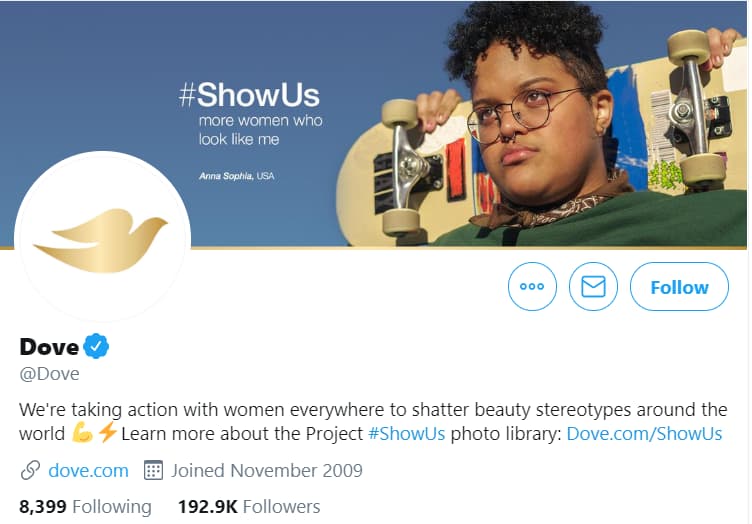
Now, throughout their content, Dove has built an identity that is founded on breaking beauty standards and boosting their customers’ self esteem. Approaching these delicate topics is no easy task, but Dove has been able to maintain a voice which has empowered their customers to feel beautiful in their own skin.
5. Sitebulb: Humorous and Self Aware
If you’re unfamiliar with Sitebulb, it is a powerful website crawler that SEOs and digital marketers use to evaluate the health of their websites and find optimization opportunities. An added bonus of the tool—the company behind it has a fantastic and relatable brand voice that makes their users feel more like old friends than customers.
Most notably, Sitebulb uses its release notes—a notoriously boring piece of content for any tool or software—and infuses it with witty, honest humor.

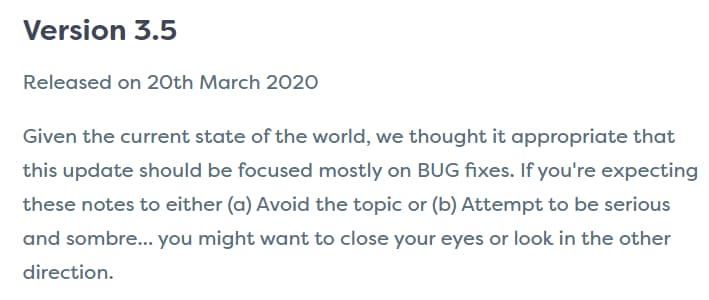
This type of humor and self awareness is a common feature in Sitebulb’s content. The Sitebulb team has been successful in putting a fun spin on otherwise dry topics and their users appreciate this fact. In doing so, they’ve found interesting ways to engage with their audience and stand out from their competitors.
Crafting Your Brand Voice
Without a cohesive brand voice, you risk confusing your audience and missing out on opportunities to build relationships. Instead, you want to create a unified presence, allowing your customers to relate to your company and establish a sense of trust.
Now that you’ve seen a few examples of companies with great brand voice, it’s time to start crafting your own brand voice or honing what you already have. Once you have a clear, defined identity, you can utilize it across all aspects of your marketing efforts.
Are you unsure of whether or not you’re capable of defining your company’s brand voice? Download our Brand Voice Worksheet to get started, or reach out to see how we can help.






